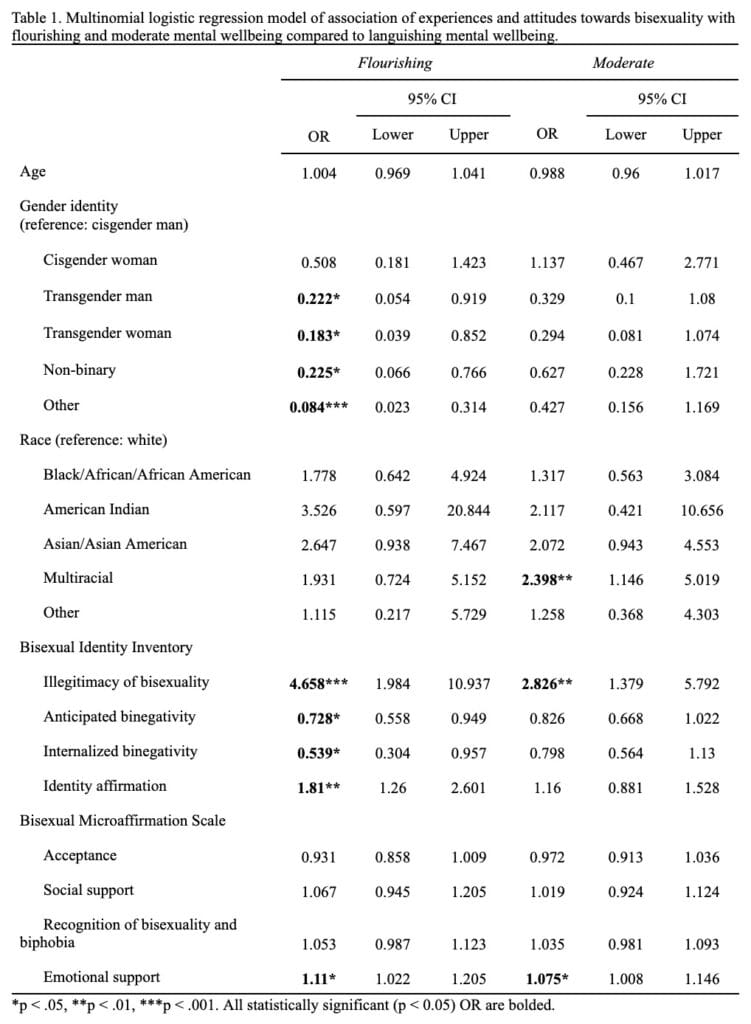Mental Health
Exploring the relationship between mental wellbeing and identity affirmation among bisexual+ people G. Nic Rider* Nora Y. Sun Jennifer A. Vencill
Background: The dual continuum model posits that mental wellbeing and mental illness are distinct but related mental health dimensions, with mental wellbeing a better predictor of overall health. While studies suggest bisexual+ people (people with non-monosexual identities) experience higher rates of mental health concerns than lesbian/gay people, little is known about positive mental wellbeing among bi+ people.
Objective: To examine mental wellbeing (flourishing/moderate/languishing) among bi+ people, and identify culturally specific factors related to flourishing.
Methods: 446 bi+ adults took a survey with demographics, Mental Health Continuum-Short Form, Bisexual Identity Inventory (BII), and Bisexual Microaffirmation Scale (BMAFFS). We used multinomial logistic regression to test associations between mental wellbeing and age, race, gender, BII and BMAFFS subscales.
Results: Most participants reported moderate mental wellbeing (58.1%), whereas the remainder of the sample was split between flourishing (21.7%) or languishing (20.2%). Anticipated (OR: 0.73, 95% CI: 0.56, 0.95) and internalized binegativity (OR: 0.54, 95% CI: 0.3, 0.96) and all trans/nonbinary gender identities were associated with decreased odds of flourishing. Internalized bisexual illegitimacy (OR: 4.66, 95% CI: 1.98, 10.94), bisexual identity affirmation (OR: 1.81, 95% CI: 1.26, 2.6) and emotional support (OR: 1.11, 95% CI: 1.02, 1.21) were associated with increased odds of flourishing.
Discussion: A greater portion of bi+ adults in our sample are flourishing (21.8%) in comparison to general U.S. adults (17.2%). Bi+ people appear to flourish despite internal stressors (e.g., internalized bisexual illegitimacy), potentially due to stronger peer support and coping mechanisms developed due to identity-based marginalization. Strengths-based research incorporating nuanced psychosocial measures specific to bisexuality is critical to further understand the complexities of flourishing among bi+ people.

